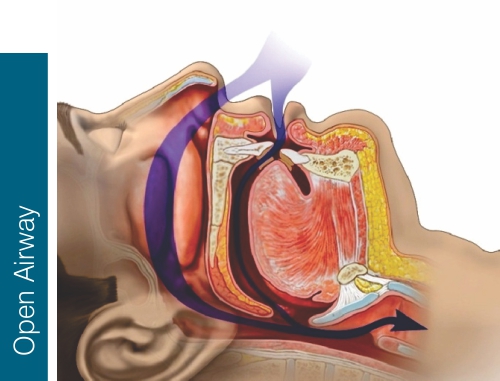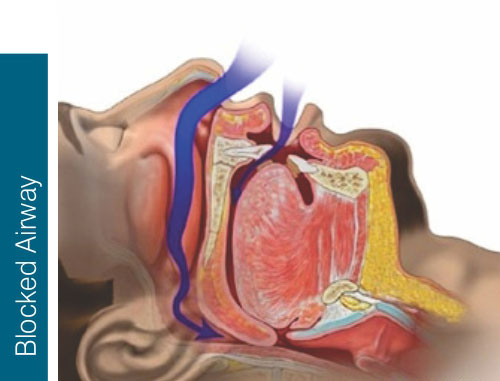Obstructive sleep apnea (OSA) is caused during sleep by blocked airflow due to the narrowing and closure of the upper airway. This causes the brain and other organs to become oxygen deprived which may cause poor quality sleep. Central sleep apnea (CSA) is another form of sleep apnea characterised by airflow cessation due to the brain not signalling the breathing muscles to work.
It is important to note how tired you feel and whether your signs and symptoms affect your daily routine. Untreated sleep apnea could lead to high blood pressure, cardiovascular problems, such as heart attacks, and strokes.


Sleep apnea is a serious, potentially life-threatening condition that is far more common than is generally understood. Quality and quantity of sleep affect both our physical health and our performance. Sleep apnea can affect our quality of life negatively by impairing alertness and altering mood and memory. It can also increase the risk of motor vehicle and work place accidents. Sleep apnea may also increase the risk of developing long-term health risks such as:
Patients with hypertension have OSA
Patients with drug resistant hypertension have OSA
Patients with congestive heart failure and stroke have OSA
Patients with type 2 diabetes suffer from unrecognised OSA
Untreated OSA increase the risk for motor vehicle accidents by 7-fold